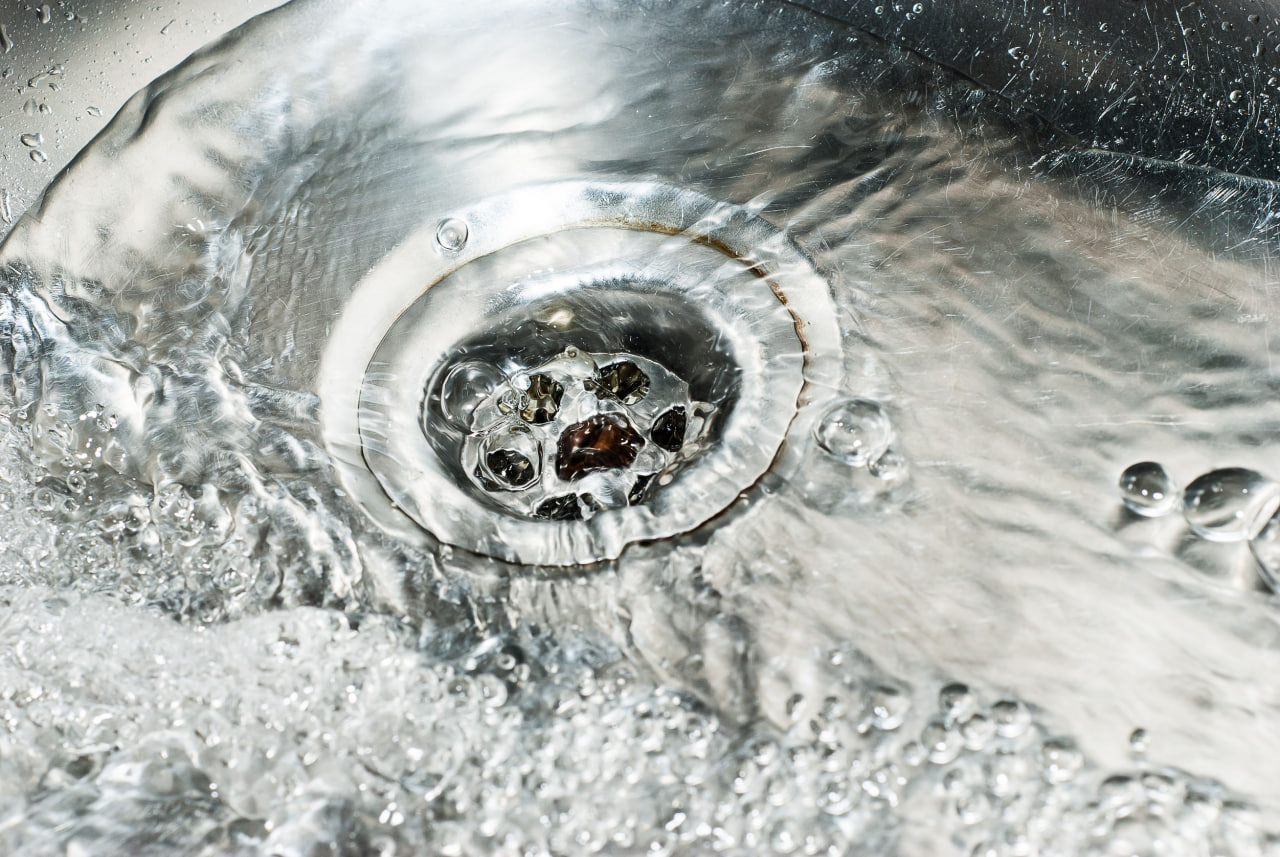If your home runs on a septic system, it’s important to be mindful about not pouring bleach down the same drain pipe; it can have negative effects on the biological processes within the tank. Septic tanks use negative air pressure to move sewage through the main drain line and use beneficial bacteria and other microorganisms located in true vents to break down the sewage into sludge. Can you pour bleach down the sink?
While bleach may seem like an easy fix for cleaning, its misuse could interrupt these processes and cause an even bigger mess than before. To preserve proper operation of a septic system, it is best to avoid using bleach in drains or any part of the sewer system, instead relying on non-toxic alternatives or professional maintenance services.
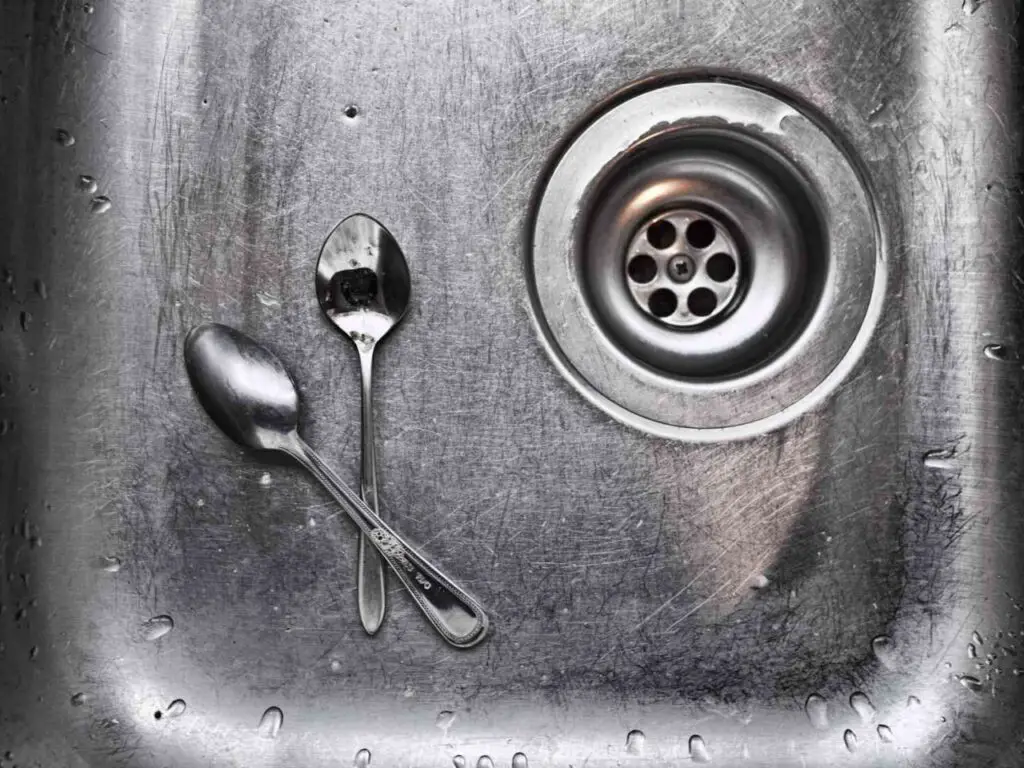
Not on A Septic Tank System?
If you’re connected to a city sewer system, can you still use bleach down the drain? The answer might surprise (and reassure) many urban dwellers – yes! So go ahead and pour poured bleach away if necessary.
Can you pour bleach down the drain? Sure, we all have that choice. However, before you jump on board and start pouring away there’s something to consider – should this be done at all? From pipes getting corroded to potential contamination of nearby sources like streams or rivers; it might not be worth taking a chance despite our ability to do so. Think twice before turning your sink into an impromptu pool!
Pouring Bleach Down The Drain Can Be Dangerous
You may think that whatever goes down the sink is gone for good, but this isn’t always true – you need to flush it away with water or else it could remain lurking in your drains!
If you want to keep your drains clean, pour a bleach solution down them. However, beware of the p-trap – this part of shower drain under the sink can easily trap some of that solution if it’s not thoroughly washed away with water!
If you’re not careful, adding seemingly harmless chemicals to your drains can have dangerous consequences! Without proper flushing after introducing bleach or other materials into the plumbing, a hazardous reaction could occur. Be sure to keep yourself safe by familiarizing yourself with potential dangers and properly cleaning out those pipes.
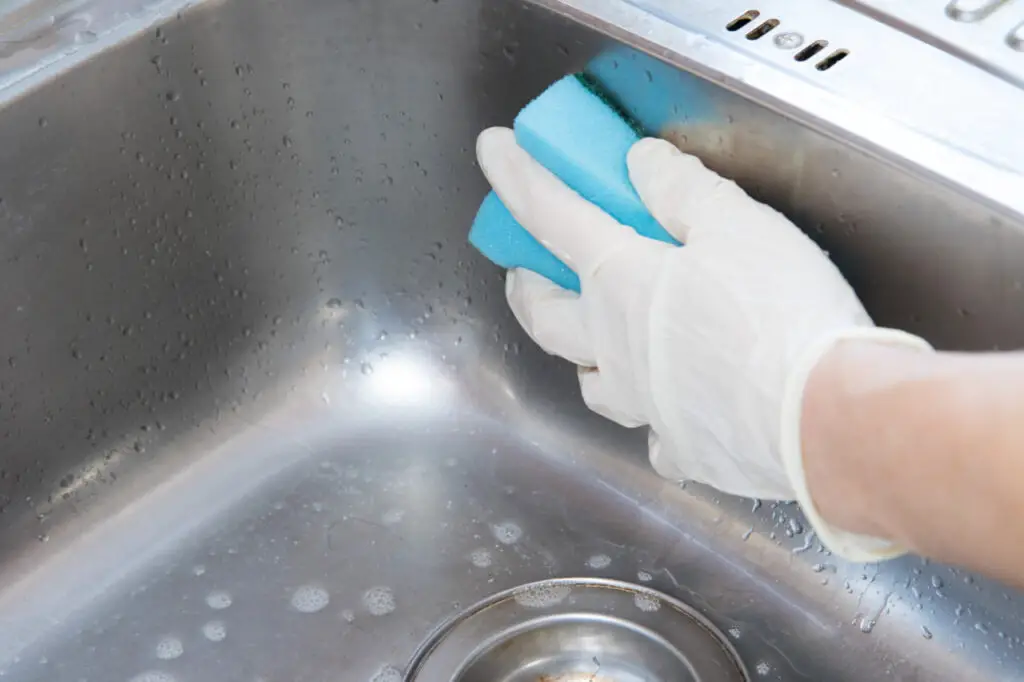
Chloramine Gas
Combining vinegar or other acids containing ammonia with chlorine bleach, can be a recipe for disaster – the potentially toxic gas chloramine is produced as a result.
Chlorine gas is a silent killer, with the potential to wreak havoc on its victims. Inhaling it can cause serious issues such as burning eyes, vomiting and even death – making this invisible hazard particularly dangerous for your family’s health.
Household items such as toilet bowl cleaners, glass and window cleaners and glass cleaners, drain solvents and rust removers are all likely to contain acids – so be sure you never combine them! An accidental mix-up could have potentially hazardous consequences.
Bleach Can Damage Plumbing
Be careful when combining bleach with other chemicals – the results can be extremely hazardous! Not only could your health suffer, but plumbing issues in your home may also arise.
While you may be aware of the deodorizing and disinfecting power of bleach, did you know that when combined with other ingredients a powerful chemical reaction can take place? This potent combination of bleach releases toxic fumes and an abundance of energy in the form heat – enough to startle even those familiar with its cleaning capabilities.
An ill-advised combination of drain cleaner and bleach can be disastrous; a chemical reaction between the two could cause intense heat, causing plumbing to become damaged or even rupture.
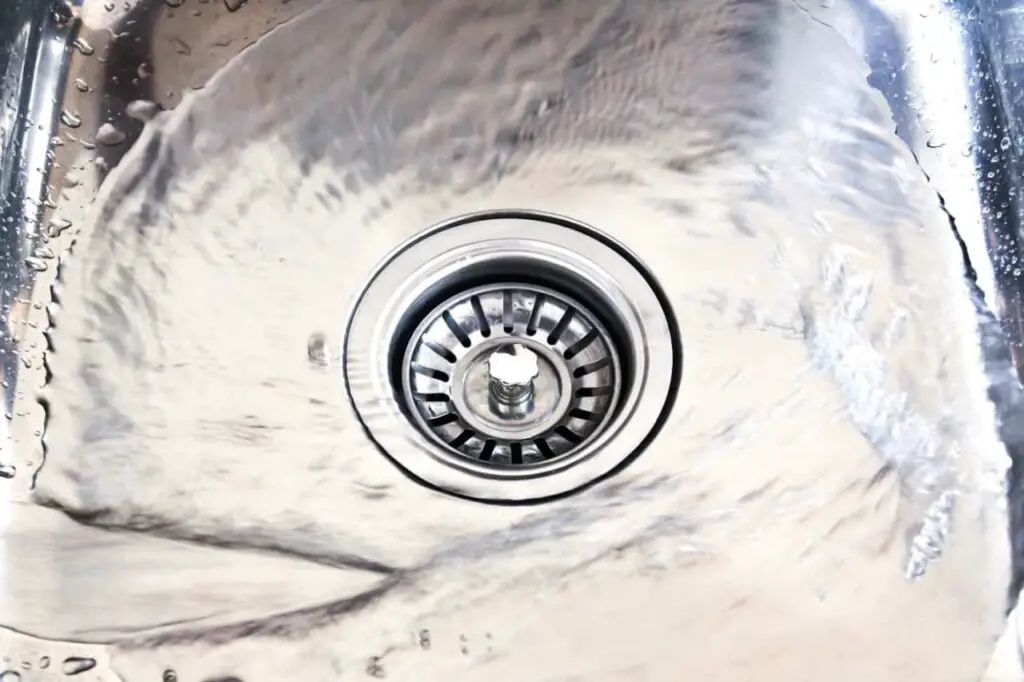
Issues With Pouring Bleach Down The Drain in Older Homes
In older homes, a reaction between lead repairs and copper pipe can create brass fittings that cause potential issues. When not properly maintained these fixtures may be hazardous to one’s health, making it essential for home owners of vintage abodes to keep an eye on their plumbing systems!
Bleach may seem like a miracle cleaner, but it can wreak havoc on your plumbing if not used properly. Its corrosive qualities can cause discoloration and damage to garbage disposal blades as well as rubber gaskets, plastic pipes, and even lead pipes!
Alternatives To Pouring Bleach Down The Drain
When drains become clogged, we’re often told to reach for the bleach. But this strategy could actually cause more damage to drain pipes than it fixes! With its corrosive properties, pouring bleach down your pipes can do serious harm to not just them but also you and the environment.
If you’re dealing with a backed-up drain, these alternatives to bleach offer effective solutions for clearing it out! Discover the power of baking soda or vinegar and avoid the harsh effects of chemical drain cleaners yourself.
Boiling Water
Unclogging a sink or shower can be as easy as pouring hot water down the drain. With no harsh chemicals required, this solution provides an efficient and environmentally friendly way to quickly solve your plumbing issues. For tougher clogs that resist boiling water alone, there are additional methods you can try for fast results!
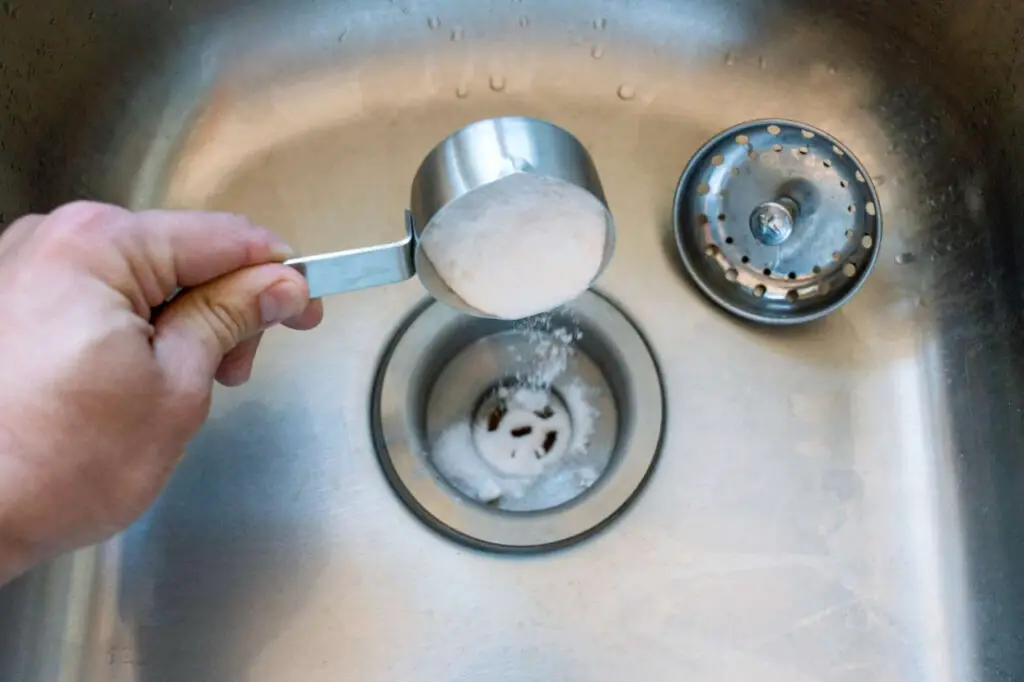
Baking Soda and Vinegar
Looking for a deep clean? Give baking soda and vinegar a try – combining these two ingredients provides powerful cleansing action to tackle the toughest of messes.
Unleash the powerful cleaning power of baking soda and vinegar! When combined, these two ingredients produce a chemical reaction that can easily scrub away any gunk built up in your drain.
Absorb the power of baking soda and vinegar to unclog your drains! Cover up any open drain with a stopper or guard, then let this concentrated blend do its work for around 15 minutes. Once it’s finished working on the insides of those pipes, flush away all that grime with boiling hot water.
Grease buildup in drains can be a huge problem, and it’s one that you don’t want to ignore! If your kitchen sink drain has been subjected to too much grease over time, the only effective way to tackle the clog is by using commercial cleaning products. To keep any future messes at bay – take care of those pesky grease-clogs now before they become an even bigger issue later on down the line.
While many people see bleach as an effective and useful way to unclog drains, it’s important not to forget how close South Florida is to sea level. This can mean bad news for homes that run on septic tanks; pouring bleach down the drain could lead to expensive repairs if too much of your other household cleaners and chemicals end up in them! Be sure you’re disposing all harsh products properly – otherwise big problems may arise later down the line.
WHAT TO EXPECT AFTER POURING BLEACH DOWN YOUR DRAIN?
Pouring bleach down the drain may seem like a convenient way to dispose of it, but can be hazardous. When bleach kills mixed with other chemicals in your home, toxic fumes are released that could spread through ventilation and seep into your environment. What’s more worrying is how much will end up lingering in pipes and potentially sabotage beneficial bacteria found deep within sewage systems – not an ideal outcome! Keep those harmful substances away from plumbing by using specially designated disposal bins instead.
BLEACH REACTS TO OTHER AGENTS IN YOUR PIPES
If you accidentally pour bleach down the sink, don’t worry! Its reaction with any other substances in your pipes will be neutralized when plenty of water is used to flush it away. Just remember – never intentionally mix different chemicals together in a closed system such as the drains and sinks found around our homes—this can cause dangerous reactions that could damage both plumbing and people alike!
BLEACH IS HARMFUL TO SEPTIC SYSTEMS
In South Florida, many of us have the privilege—or perhaps responsibility!—of owning a septic tank. While bleach might seem like an effective method for keeping drains clean and free from bacteria, it can do more harm than good in this case: too much bleaching will destroy the helpful ‘good’ bacteria that live within your system and keep waste flowing freely out of your house. Without these vital organisms to maintain balance between incoming matter and outgoing water flow, clogging is sure to follow soon after – so when it comes time for drain cleaning maintenance on tanks with septics systems below them – avoid using any type of bleach at all costs!
NOTHING GOOD WILL HAPPEN IF BLEACH IS MIXED WITH AMMONIA
When bleach and ammonia mingle, an invisible menace is born: deadly chloramine gas. This noxious substance infiltrates pipes within your home before floating through the air to slowly poison those who breathe it in. The length of exposure determines its ultimate outcome, from uncomfortable ailments to lethal consequences!
Here’s what exposure to chloramine gases can cause:
- Struggling for breath, a relentless cough reverberates in the air – common symptoms of an ailment not to be ignored.
- The person was overcome with an agonizing chest pain as if their lungs were on fire, and it seemed to be exacerbated by a raspy wheezing sound.
- Inhaling airborne irritants can cause discomfort to the world around us, creating an array of respiratory symptoms ranging from a runny nose and burning eyes to sore throats.
- A potentially deadly illness, pneumonia is a serious infection of the lungs caused by bacteria or viruses that can make breathing painful and difficult. It affects millions around the world annually, but with early diagnosis and treatment individuals may be able to fight it off successfully.
SUBSTANCES AND CLEANERS THAT SHOULD NEVER BE MIXED WITH BLEACH
Be mindful when mixing bleach with household cleaners, as the combination of bleach with certain substances can create hazardous fumes that may be hazardous to your family’s health.
- Pesticides have become a necessary and often unseen part of human society; they help keep our food supply free from predators, affording us an abundance of healthy options. However, their presence can also come with consequences – by polluting environment, threatning species that are essential to ecosystems. It’s important for us all to stay informed about the use of pesticides so we can find balance between protecting humans and nourishing nature!
- Ammonia is a versatile compound that can be found in many common everyday items, from cleaning products to fertilizers. It has numerous uses due to its unique nature and ability to act as both an acid and base. This powerful substance proves essential for completing tasks around the home or garden with ease!
- From pickling veggies to cleaning surfaces, vinegar and acids can do it all! Whether you’re looking for a tasty dish or needed an extra bit of sparkle, these powerful liquids have countless uses.
- The potent combination of rubbing alcohol and acetone creates a powerful solution for breaking down tough substances. With its unique characteristics, this blend is perfect for tackling any stubborn pre-cleaning project!
- Keep your bathrooms sparkling with the help of toilet cleaners – making sure no dirt or grime remains!
- Disinfectants are the unsung heroes of cleanliness, working invisibly to keep our homes and places of work safe from germs. These powerful agents provide a crucial layer in protecting us against sickness throughout every season.
TIPS FOR DISINFECTING THE DRAIN AND REMOVING CLOGS
Our drains are our trusted allies when it comes to keeping the kitchen clean and organized – but harsh chemicals like bleach can do more harm than good! To avoid putting your pipes in danger, here’s some helpful advice on safe ways of removing clogs and cleaning out those indispensable fixtures.
VINEGAR/BAKING SODA FOAM BOMB
- Keep your drains spick and span with a simple mixture of baking soda – just pour half a cup down the sink for fresh, clean plumbing!
- With just two ingredients—vinegar and boiling water—you can create an effective cleaning foam that will blast away at messy drains.
- When the bubbling subsides, add some extra hot water to finish cleaning out your pipes and keep those drains running smoothly.
USE AN ALTERNATIVE TO BLEACH FOR DISINFECTING
To effectively and safely disinfect a sink drain, these are the alternatives household products you should be using.
- Vinegar is a tangy condiment that has been used for millennia, adding a unique flavor to dishes around the world. The ancient Romans even had dozens of varieties intended for specific culinary purposes! From salads and sauces to pickling vegetables or preserving food waste – there’s nothing vinegar can’t do.
- Baking soda – the magical ingredient that transforms a mundane mixture of ingredients into something extraordinary and delicious! With this simple yet powerful leavening agent, you can create all sorts of wonderful treats from fluffy cakes to crunchy cookies.
- Hydrogen peroxide – a powerhouse of oxygen, used for healing and boosting the body’s natural defenses when applied topically or as an oral rinse. Its very name implies its incredible power to keep us healthy!
- Tart and tangy, lemon juice is an essential ingredient for adding a burst of flavor to vibrant dishes. Whether as a dressing on salads or squeezed into drinks, this citrus-based liquid can turn any ordinary meal into something truly special!
- Tea tree oil is an essential part of traditional medicine with its healing and refreshing properties. Known for centuries, this powerful ingredient has been used to help treat various skin conditions such as acne, psoriasis and eczema while providing a pleasant aroma in the air. From cleansers to shampoos – tea tree oil can be found in several modern products today due it’s immense versatility!
LEAVE DRAIN CLEANING TO THE PROFESSIONALS
Don’t fumble through a DIY drain cleaning project – let the experts at Art Rooter, Sewer & Drain Cleaning get to the root of your clogs and blockages. Our friendly technicians have plenty of experience in draining issues and can provide you with fast solutions that last – so call us today on 1-888-773-1524 for more information or to schedule an appointment!
Read more: Why kitchen sink clogged past trap?

